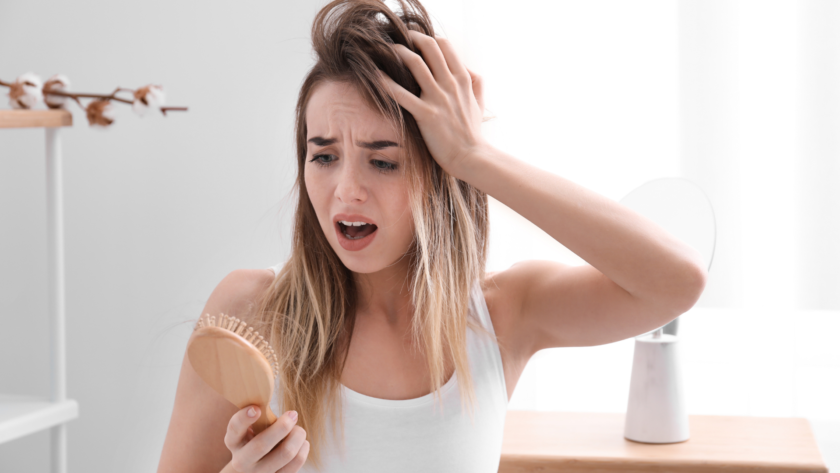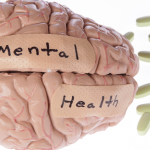Women who start taking birth control pills when they are young are at an increased risk of experiencing hair loss. Research by the University of Bergen has shown that 33 percent of women who took birth control pills for at least two years, compared to 17 percent of women who did not take oral contraceptives, have experienced thinning hair.
According to WebMD, birth control, especially oral contraceptives, can cause temporary hair loss and thinning hair. Known as telogen effluvium, this condition can cause hair to shed for 1 to 2 months after taking a birth control pill. The shedding often begins 2 to 3 months after starting oral contraceptives, but it can take as long as 6 months for the hair to grow back in again.
In cases where the hair fails to regrow naturally or the process takes an extended period, exploring non-invasive cosmetic treatments offered by reputable clinics may be a prudent option. Procedures such as Scalp Micropigmentation and Platelet-Rich Plasma therapy could potentially mitigate the effects of birth control-induced hair loss.
To address this concern effectively, consulting a hair specialist who specializes in treatments like Hair Filler Manchester (or in the appropriate region) can provide valuable guidance and solutions tailored to combat the adverse impact of oral contraceptives on hair health.
For those looking for an alternative way to enhance their hair’s appearance while managing hair loss, cosmetic solutions can offer a quick and effective fix. Alternatively, one can also consider using hair extensions as a semi-permanent solution for their hair loss, as they are external cosmetic products that are applied to existing hair, and they generally do not interact with hormonal medications like birth control.
With a variety of options available, including clip-ins, tape-ins, and bonded extensions, it is possible to find a style that suits different hair types and lifestyles. Some of the options like, the Tape-in Hair extensions are made from real human hair which can be a DIY solution for adding length and volume to natural hair.
However, it might be worth noting that hormonal changes, which can sometimes occur with birth control use, may affect natural hair growth or texture. This is not directly related to the use of extensions but could potentially impact how well the extensions blend with natural hair over time. It would be best to consult with a healthcare provider or a professional hairstylist for personalized advice, if one has specific concerns about using extensions while on birth control.
4 Types Of Hair Loss From Birth Control
Diffuse Hair Loss
There are several types of hair loss from birth control, but the most common is diffuse hair loss, which happens when hair sheds at a normal rate, but hair is also noticeably thinner. (The hair that remains can look fine, but thinned out.) While hair loss from birth control is a permanent condition, hair can return when taking the pill is stopped. When hair loss from birth control occurs, it is generally temporary; it can take up to 12 months for the hair to regrow. Learn more about the most common types of hair loss from birth control here.
Telogen Effluvium
This type of hair loss is the most common one. It occurs after a shock-like hair loss, usually in clumps, a few weeks after starting the pill. The hair loss is temporary and usually stops within a few months. Overuse of the pill may cause permanent hair loss.
Hair loss, or telogen effluvium, is a temporary hair loss condition that can occur in women who take certain medications, such as hormonal birth control. Women who experience this type of hair loss may experience shedding for several months, and the hair will grow back in with new, healthier hair.
When you stop taking the pill, that accumulation is released into your system while your body is shedding its own hair. This can cause increased hair loss; a condition called telogen effluvium. Women who experience telogen effluvium often experience hair shedding and breakage in clumps. The good news is that your hair should grow back once your body adjusts to no longer taking the pill.
Traction Alopecia
This type is more common in women who wear tight hairstyles, such as ponytails and cornrows. The hair roots become damaged, and the hair breaks off. Traction alopecia, or traction baldness, is hair loss caused by excessive pulling on the hair follicles, usually from tight hair weaves, braids, tight ponytails, or hair extensions. This hair loss commonly affects African-American women and is most common among women with fuller hair. Some symptoms include hair loss at the hairline, thinning in the crown or top of the scalp, and breakage at the tips of the extensions or ponytails.
Androgenetic Alopecia
Women who experience androgenetic alopecia (commonly known as female pattern baldness) are the most likely demographic to use hormonal birth control. While it may come as a surprise to some, taking pills to lower testosterone levels, like the pill, patches, shots, or rings, can actually impact the shape of a woman’s head. Yet, women aren’t the only ones who suffer. Women who experience hair loss from hormonal birth control can experience a thinning hairline or mid-forehead, as well as patchy areas of hair loss, known as androgenetic alopecia.
How to Avoid Hair Loss While Using the Pill
Take Vitamins
Losing your hair can be an embarrassing and devastating reminder of aging. While it may be unavoidable, you can take steps to avoid hair loss while taking the pill. The key is eating a well-balanced diet, taking vitamins, and being mindful of stress. As a side effect, the pill itself may actually prevent hair loss.
Treat the Scalp
A healthy scalp means healthy hair. It all starts from there. That’s why it’s important to use products that focus on scalp care. Try using a hair growth scalp serum with ingredients like rosemary or salicylic acid to clear buildup and create the right environment for new growth. Oiling your hair at least once a week with castor oil or warm coconut oil can also deeply nourish your scalp and strands. If your scalp feels sensitive, aloe vera or tea tree oil can offer gentle care while supporting your overall scalp health. For a more clinical option, you can also try something like regaine for women. This Minoxidil-based solution can stimulate your hair follicles and encourage regrowth when used consistently.
Minimize Stress
Hair loss is an unfortunate side effect of using the pill:
- Make sure you are taking the pill regularly and always at the same time each day. This helps prevent your body from going into irregular rhythms, where your body is not sure when to start or stop making the important hormones.
- Be sure to take your pill at the same time each day. This lets your body know when to make the hormones.
- It is important to avoid stress.
Stress causes your body to make extra hormones, leading to hair thinning.




